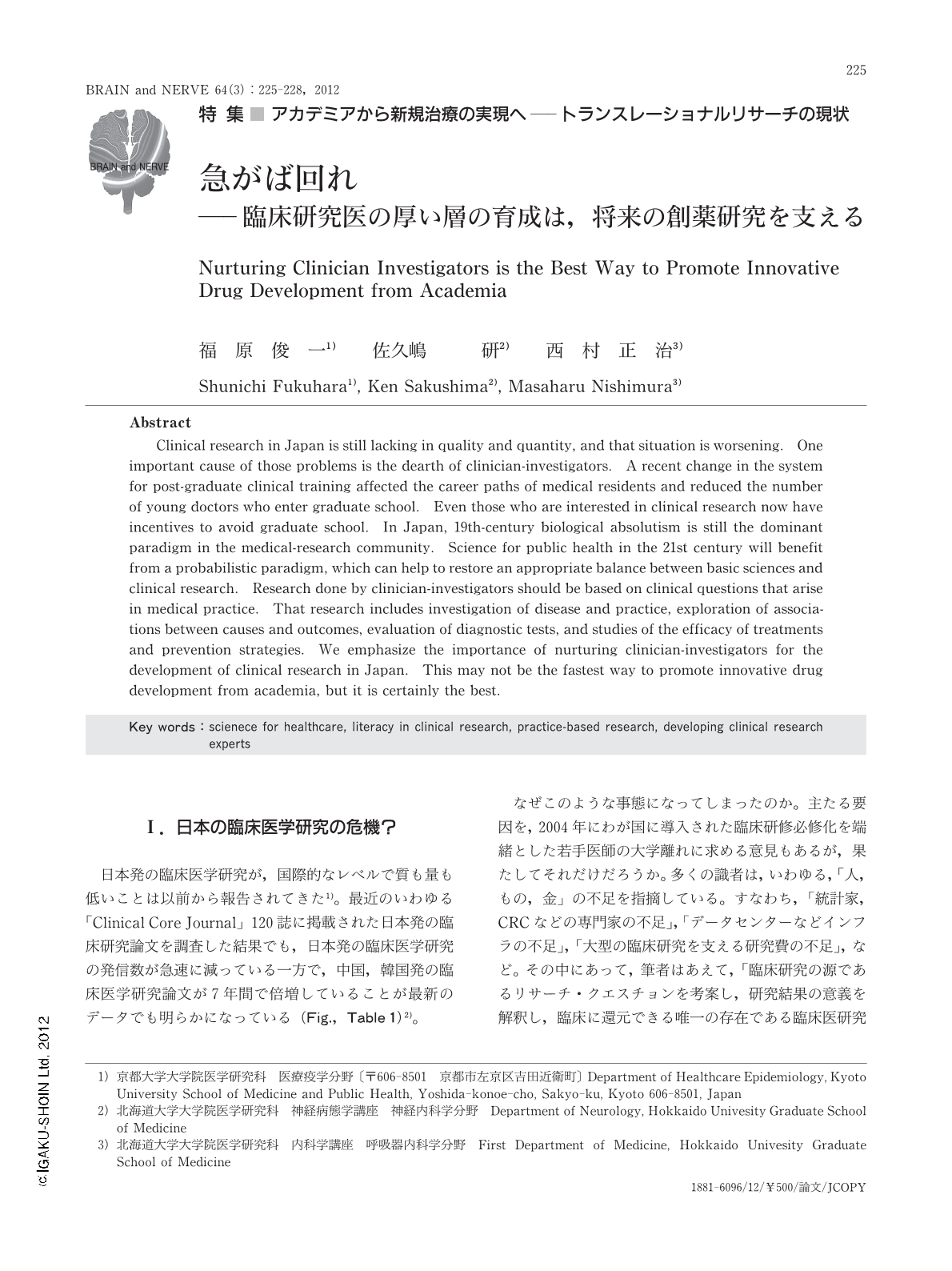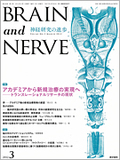Japanese
English
- 有料閲覧
- Abstract 文献概要
- 1ページ目 Look Inside
- 参考文献 Reference
Ⅰ.日本の臨床医学研究の危機?
日本発の臨床医学研究が,国際的なレベルで質も量も低いことは以前から報告されてきた1)。最近のいわゆる「Clinical Core Journal」120誌に掲載された日本発の臨床研究論文を調査した結果でも,日本発の臨床医学研究の発信数が急速に減っている一方で,中国,韓国発の臨床医学研究論文が7年間で倍増していることが最新のデータでも明らかになっている(Fig.,Table1)2)。
なぜこのような事態になってしまったのか。主たる要因を,2004年にわが国に導入された臨床研修必修化を端緒とした若手医師の大学離れに求める意見もあるが,果たしてそれだけだろうか。多くの識者は,いわゆる,「人,もの,金」の不足を指摘している。すなわち,「統計家,CRCなどの専門家の不足」,「データセンターなどインフラの不足」,「大型の臨床研究を支える研究費の不足」,など。その中にあって,筆者はあえて,「臨床研究の源であるリサーチ・クエスチョンを考案し,研究結果の意義を解釈し,臨床に還元できる唯一の存在である臨床医研究者(clinician investigator)の不足」を,今日の臨床医学研究の危機的状況の要因の筆頭に挙げる者である。
Abstract
Clinical research in Japan is still lacking in quality and quantity,and that situation is worsening. One important cause of those problems is the dearth of clinician-investigators. A recent change in the system for post-graduate clinical training affected the career paths of medical residents and reduced the number of young doctors who enter graduate school. Even those who are interested in clinical research now have incentives to avoid graduate school. In Japan,19th-century biological absolutism is still the dominant paradigm in the medical-research community. Science for public health in the 21st century will benefit from a probabilistic paradigm,which can help to restore an appropriate balance between basic sciences and clinical research. Research done by clinician-investigators should be based on clinical questions that arise in medical practice. That research includes investigation of disease and practice,exploration of associations between causes and outcomes,evaluation of diagnostic tests,and studies of the efficacy of treatments and prevention strategies. We emphasize the importance of nurturing clinician-investigators for the development of clinical research in Japan. This may not be the fastest way to promote innovative drug development from academia,but it is certainly the best.

Copyright © 2012, Igaku-Shoin Ltd. All rights reserved.


